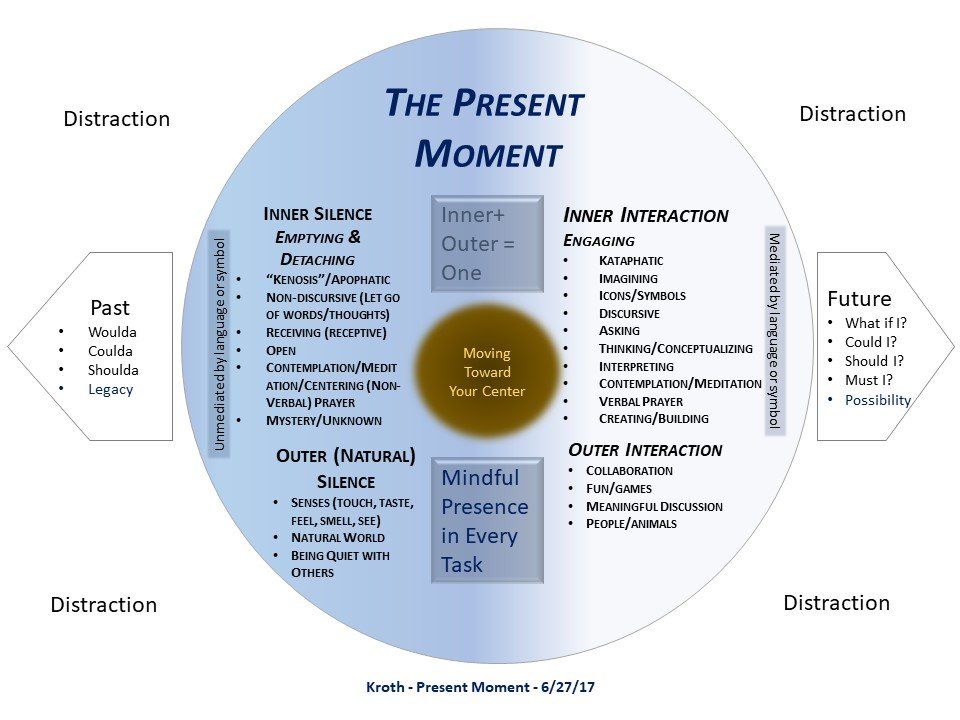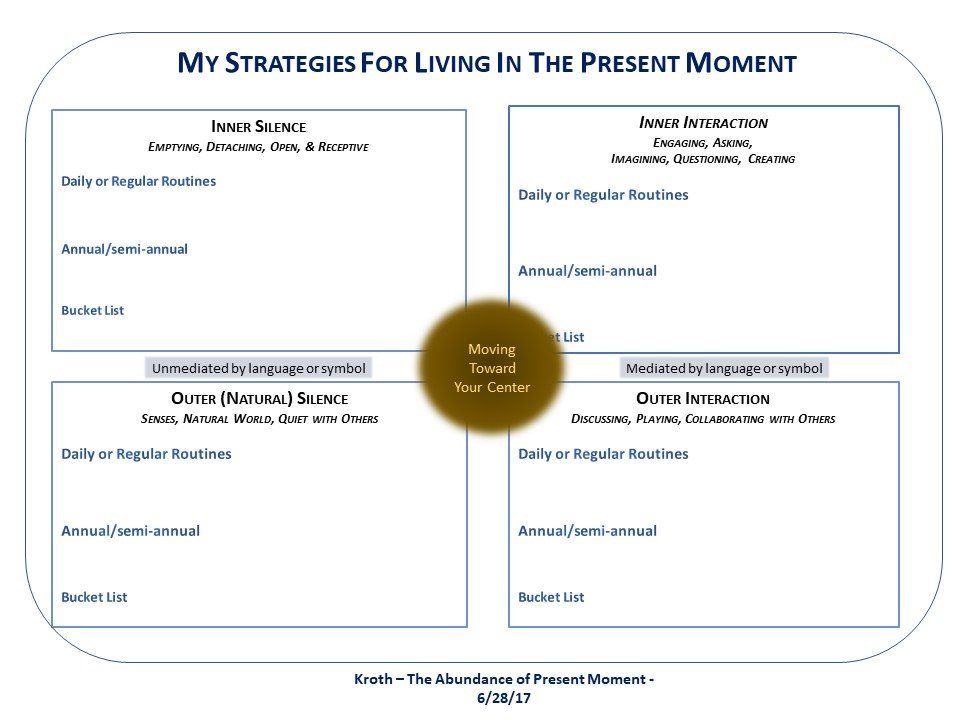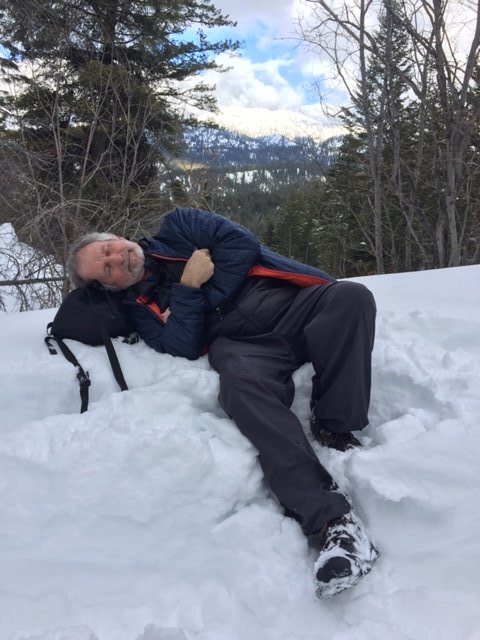Presence - Four Perspectives
Practicing Presence II
Little has made a bigger, more positive difference in my life than learning the importance of living in the present moment. Getting married made a bigger, more positive difference. Raising two wonderful kids, and helping them out with their kids, made a bigger, more positive difference. There are a very few other things, but not many.
Before I learned the value of daily contemplation my life was a mess. I found myself almost immobile at times because I was so depressed about the past and anxious about the future. Looking back, I have a hard time imagining how my family put up with me, but it’s a testament to their love that they did. My friends? I didn’t let them see the turmoil within, the deep blues encompassing me. At least I tried not to let them in on that.
I mark the day that low point started to turn around when my friend Dave Player taught me how to “breathe”. That is, his practice of spending 20 minutes each morning breathing in and breathing out. I started doing the same thing – trying to – and he encouraged me. It took me awhile, some fits and starts, but contemplation for 20-30 minutes each morning has now been a part of my routine, or “practice”, for six years.
What a difference! Instead of dreading a new day, these days I can’t wait for the new day. I still have plenty of ups and downs, but overall I try to do as Thich Nhat Hanh advised in Present Moment, Wonderful Moment (1990) :
Waking up this morning, I smile.
Twenty-four brand new hours are before me.
I vow to live fully in each moment
and to look at all beings with eyes of compassion
.
Everyone is different and this might not be for you. I just know that practicing contemplation, seeking silence and solitude even for a few minutes each day, was a life-changer for me.
I began to soak up – like a dry sponge – all I could about contemplation. Many people have followed these practices for many years, decades and decades, so I have a “beginners mind” (Suzuki, 1970) about it all. After starting with Thich Nhat Hanh, I began to read the great Catholic contemplatives, like Thomas Merton and Thomas Keating, not to mention the person who has helped me understand non-dual thinking more than anyone - Father Richard Rohr.
Because one of the best ways for me to learn is to teach, I decided to put together a workshop about silence, which broadened as I developed it to become a “presence” workshop (I discussed this here - Practicing Presence Overview }.
To help me lead my library presence workshop, I put together a model for looking at four perspectives of presence (see above). Each is a portal into practices which lead to becoming more “present” each day and each moment, over time. Great writers and spiritual leaders have written about this and led many thousands of people to practices of presence over the centuries, so I don’t pretend this to be anything close to that level of depth or knowledge or experience. But I needed some way to anchor this for other neophytes and so this.
I will spend some time in future essays looking at the four areas – inner silence , where one works to empty their minds of thoughts; outer silence , where one interacts wordlessly with the natural and external world primarily through their senses but also in silence with others; inner interaction , where one is fully present inside, but now engaging with words, icons, music, and ideas; and finally outer interaction , where one is fully present with others.
I am sure to have missed something, but this is a beginner’s guide to living in the present moment for me.There are also practices or activities which can facilitate presence in each of these areas, and "My Strategies for Living In The Present Moment", can help folks to think about the possibilities.Practices, unlike goals, take place over time, even until the end of life. They can never be fully achieved. There is always more to practice, so I imagine I’ll be working on this until death do us part.There are many types of practices, such as prayer, solitude, worship - really, much of this is about the spiritual disciplines found in every faith tradition - and our next presence discussion will start working through each of the four areas, because reading about this is worthless unless it is accompanied with experience and, best, practice over time.
My recommendation, though, is not to try to do it on your own. My friend Dave got me started and supported me, then I spent time - not a lot, but some - in places like monasteries, and began spending a lot of time in church, mostly my own church but also those of other faith traditions, and I spent many, many hours talking with people who have done this kind of thing for a long time. And I still do all those things, including having a cup of tea with Dave once a week.
Moving toward presence is movement toward that which is more profound in our lives. Being present enriches every exchange, every smell or taste or sight or sound or touch, just every experience, and every relationship. Being present allows us to move toward and to be open to mystery, and to allow mystery to resonate and to move toward us.
Practicing presence is an endeavor of a lifetime. It has made a monumental difference in my life so far. It has led me to explore depth inside me and around me that I hadn't ever even considered before. Having come just a bit of the way, I still have a long, long way to go. I am looking forward to it.
Perhaps it is something to think about for your own journey.
References:
Hanh, T. N. (1990). Present moment, wonderful moment: mindfulness verses for daily living . Berkeley, Calif., Parallax Press.
Suzuki, S. (1970). Zen mind, beginner's mind
. New York,,
Walker/Weatherhill.
Photo Credits:
Cover and Closing Photos by Vinji, taking while hiking the trail toward Stackrock, just outside Boise, Idaho. See more of Vinji's work at www.vinji.org.













